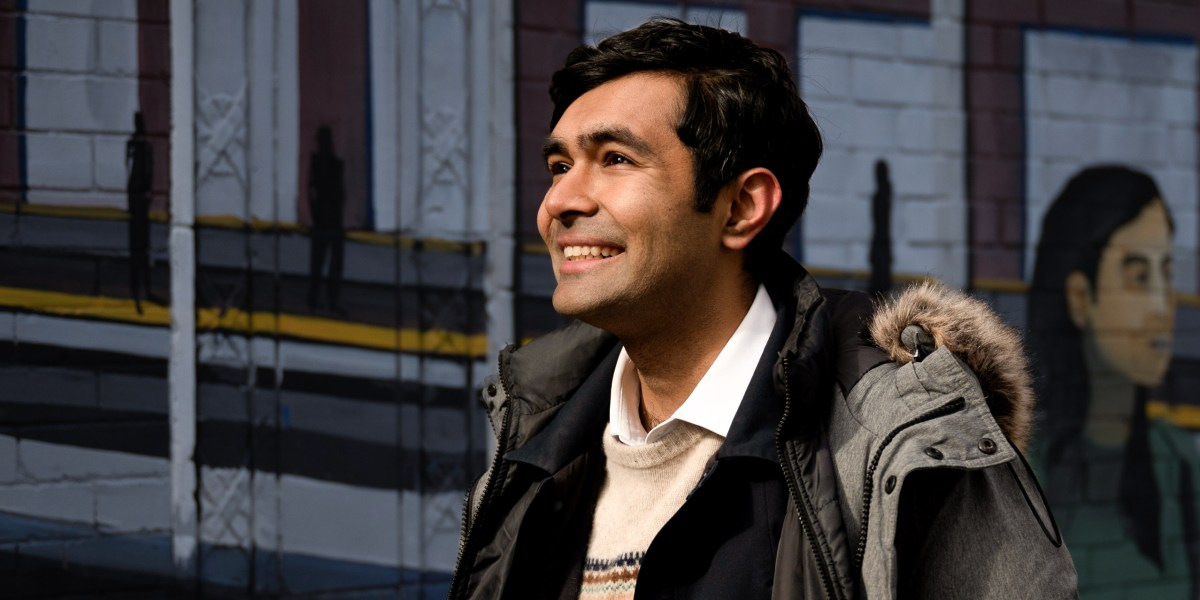
He credits his success in part to being “really good at the boring technical stuff,” as he puts it. “I write my own policy and I go through all the details of the bills,” he says, noting that not every local politician is willing or able to do that. “There’s lots of stuff that people just don’t enjoy doing, and if you can find a way to enjoy it, then there’s lots of work to be done.”
Huang says Azeem’s tendency to pore over every detail makes him stand out, as do his “listening very well” and his collaborative approach. “He’s impressively in the weeds on policy,” he says. “He does his homework and understands the issues and really grapples with the nuance.”
A lifetime to go
Though young people are notorious for skipping local elections, Azeem sees his experience as a testament to the remarkable power of hyperlocal politics—and to why his peers shouldn’t sit them out.
“[The city council] has a roughly $1.25 billion budget. Divide that by nine [council members], and it’s over $100 million per person. Each of us gets elected on 2,000-ish votes. So it’s almost $60,000 per vote. That’s your impact,” he says. “I lost by 100 votes in my first election and won by 200 in my second. If you had taken the person who came in 10th, and replaced them with me, more than 100 million dollars would have gone in a different direction than they did. That’s crazy to think about: 200 citizens decided where $100 million went.”
In his second term, Azeem hopes to influence where another $100 million–plus will go. He already has ideas for bills that he thinks will increase public transit options, help Cambridge fight climate change while adapting to its impact, make it easier for citizens to afford basic necessities like housing, and make streets safer for cyclists, pedestrians, and all citizens.
He acknowledges that public service is not always the easiest choice to make as a young person. Despite his remarkable work ethic and ambition, Azeem is still a twentysomething who wants to enjoy his life. Going out with his friends for a night of dancing can be a bit odd when it ends with people approaching him and asking, “Are you my city council member?” He even got recognized once when he was using a dating app.
From Sharma’s perspective, the best way to understand Azeem’s seemingly boundless drive is through the lens of “immigrant psychology,” which Sharma in many ways shares. “When I was starting this new company, he wanted to join,” he recalls, “and I was like, ‘How will you do all of this? Starting a new company is demanding. You cannot do both that [and be on city council]. He said, ‘I will do whatever needs to be done. I just don’t want to waste my life.’”
With reelection in the bag, and with a fresh influx of funding at Tandem, Azeem is finding himself in a more stable position than he’s been in for a long time, which is affording him new space to think about the future. He’s grateful that he’s been able to both work in local politics and be part of two successful startups, but he knows that down the line he may have to choose one path or the other.
He hasn’t decided yet which will win out. But what he does know for sure is that he wants to leave a legacy he can be proud of—and he’ll be happy to let his work speak for itself.
“A lot of people feel like they need to be in the spotlight because they feel like they’re the ‘main character,’” he says. “But five to 10 years from now, when I’m looking back, I just want to see that the things I did are still around and having a positive impact.”
